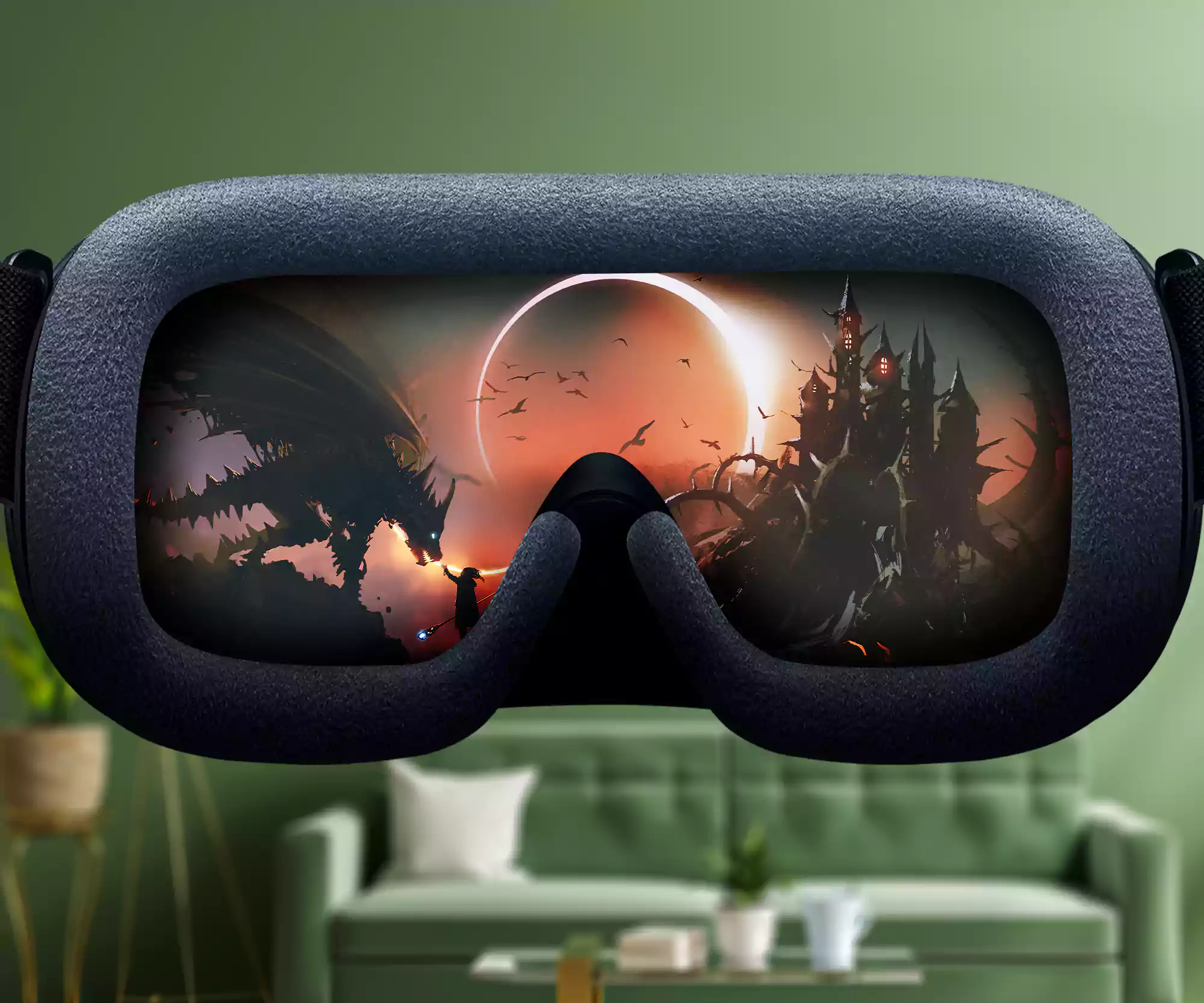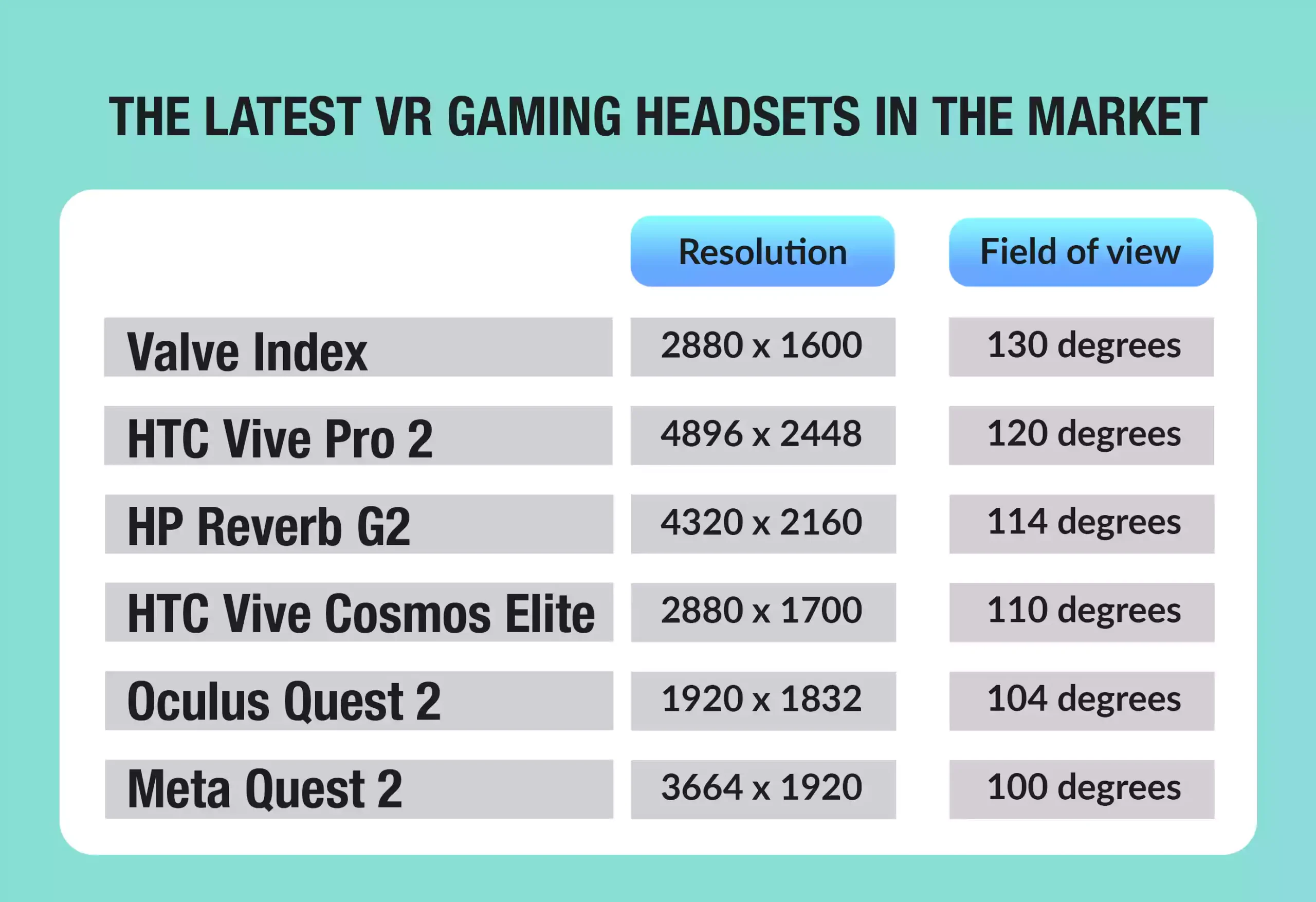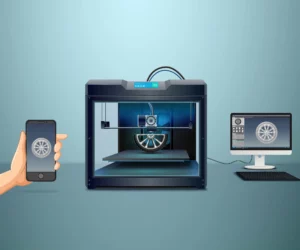
Video games have held the fascination of computer programmers and players alike for over five decades now. Its humble beginnings kicked off in the early 1960s when computer scientists at the Massachusetts Institute of Technology (MIT) designed ‘Spacewar!’. It was a video display game based on space combat. However, the advent of next-generation communication technologies, such as 5G, and digitised devices, such as smartphones and motion-sensing consoles, have opened new avenues. Now, gamers demand more realistic, stylised, and immersive storylines in video games. The applications of virtual reality (VR) in the gaming industry fulfil these evolving demands. Let’s discover more about the latest in this ever-evolving field.
Industry developments
More and more tech giants are employing AR and VR capabilities in their products. Consequently, this has spearheaded the transformation of the gaming industry. Let us look at some of the recent developments driving this industry.
Meta introduces new games on its VR headset
At the Meta Quest Gaming Showcase held in April 2022, Meta announced an exhaustive list of upcoming games. In addition, the company revealed that this would be available on its Oculus Quest 2 VR headsets (now Quest 2) this year. Some notable mentions include Red Matter 2, Among Us, Cities: VR, Resident Evil 4, and Ghostbusters.
The Quest 2 headset, developed by Facebook Reality Labs, was launched in October 2020 for US$ 300. Quest 2’s headset can track the player’s body and head movements and convert them into high-precision virtual reality. Furthermore, the headset has greyscale passthrough cameras that enable players to see their actual surroundings without removing their headset. For example, Quest 2 will give you a street-level view if you are playing Cities: VR. Furthermore, you could see how tall the buildings, mountains, and other structures are around you. Thus, this headset ensures immersion in the virtual world to the fullest.

Ubisoft develops games exclusively for Oculus
In September 2020, Ubisoft Entertainment, the French video game behemoth, made an exciting announcement. It would soon develop two new games (based on Tom Clancy’s Splinter Cell and Assassin’s Creed) exclusively for the Oculus virtual reality platform. In addition to bringing these popular franchises to the world of VR, Ubisoft will also be leveraging Oculus Quest’s all-in-one hardware. These headsets and controllers work with the environment around the user. For instance, Oculus Insight works as a tracker in this headset. It translates the user’s motions into virtual reality without needing external sensors. Likewise, Oculus Touch, a set of motion controllers, brings hand gestures directly into the game. These innovative features will enhance the accuracy and authenticity of the content of these franchises.
Apple to launch VR/AR headset in January 2023
According to Apple insiders, the California-based tech multinational is also ready with its move. The company is prepared to introduce its virtual reality/augmented reality headset sometime in January 2023. This product will be the company’s most complex creation to date, combining VR, AR, and mixed reality (MR). Needless to say, the technology incorporated by Apple in its headsets will fit perfectly with existing simulated gaming environments. As a result, this could take VR- and AR-based games to the next level, intensifying competition in this industry.
AI and VR in gaming: a master combination
Virtual reality technology is already making waves across industries, especially gaming. But what happens when you throw artificial intelligence (AI) into the mix? We caught a glimpse at the 2020 Venice International Film Festival. A short, interactive VR film/game called Agence demonstrated the fantastical convergence of today’s most advanced technologies. The design of this movie/game allowed viewers to actively involve themselves in that world. If they didn’t want to play the characters in the plot, that was fine too. They could just let the AI do its work, and the characters could act independently. This dynamic storytelling essentially blurs the line between the virtual and the real. Later that year, Agence was also released on Steam, an online video game platform.
In August 2017, a Dusseldorf-based voice AI company, Cogniny, achieved another laudable AI-VR amalgam. They developed a ‘conversation engine’, a chatbot that can converse with the user according to context and settings. Such chatbots can identify conversation patterns and learn through different interactions. In Cogniny’s case, it is possible to plug the chatbot into TripleA and independent games. By doing this, developers can create intelligent characters that are able to interact with each other meaningfully. Best of all, you can use the plugin on VR platforms, enhancing the gaming experience.
The future of VR in gaming
The scene of VR gaming is steadily changing. The VR market is inching its way from strength to strength. It addresses accessibility issues, negotiates affordability, and constantly innovates new designs. However, there are still some bumps along the way for this technology. The chip market is already struggling to meet the electronic needs of VR gaming. Health concerns like blurred vision, motion sickness, and headaches are alarming much of the target consumer base. High-end classes of VR games still see only limited takers because of the expensive hardware required to run them. Yet, even with this slow rise, things continue to look up. Grand View Research reveals that the VR gaming sector will attract a market value of $87 billion by 2030! With that kind of projection for this immersive technology, the next few years promise excitement, if nothing else.


